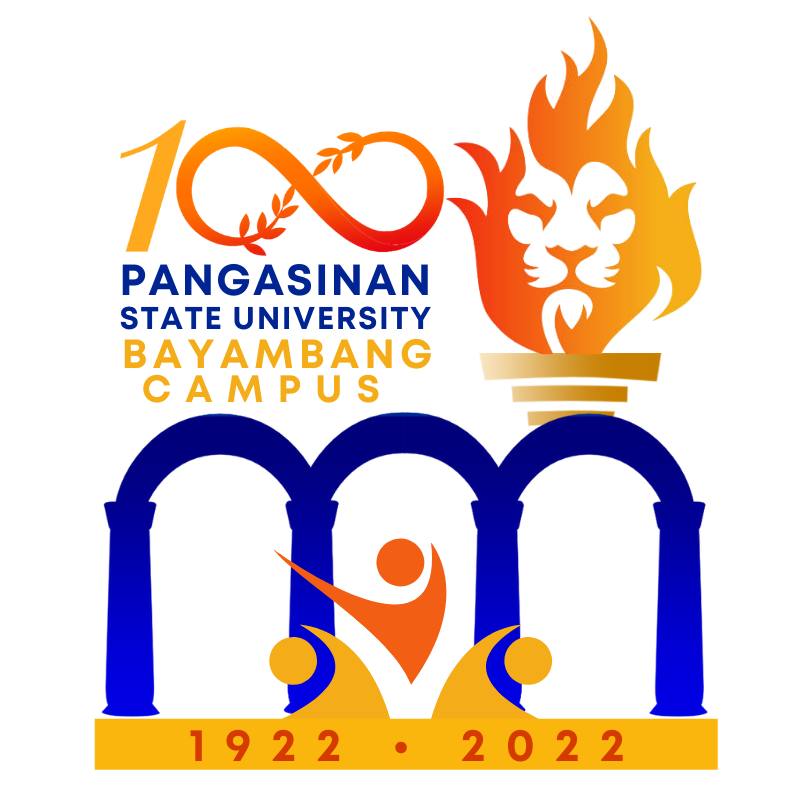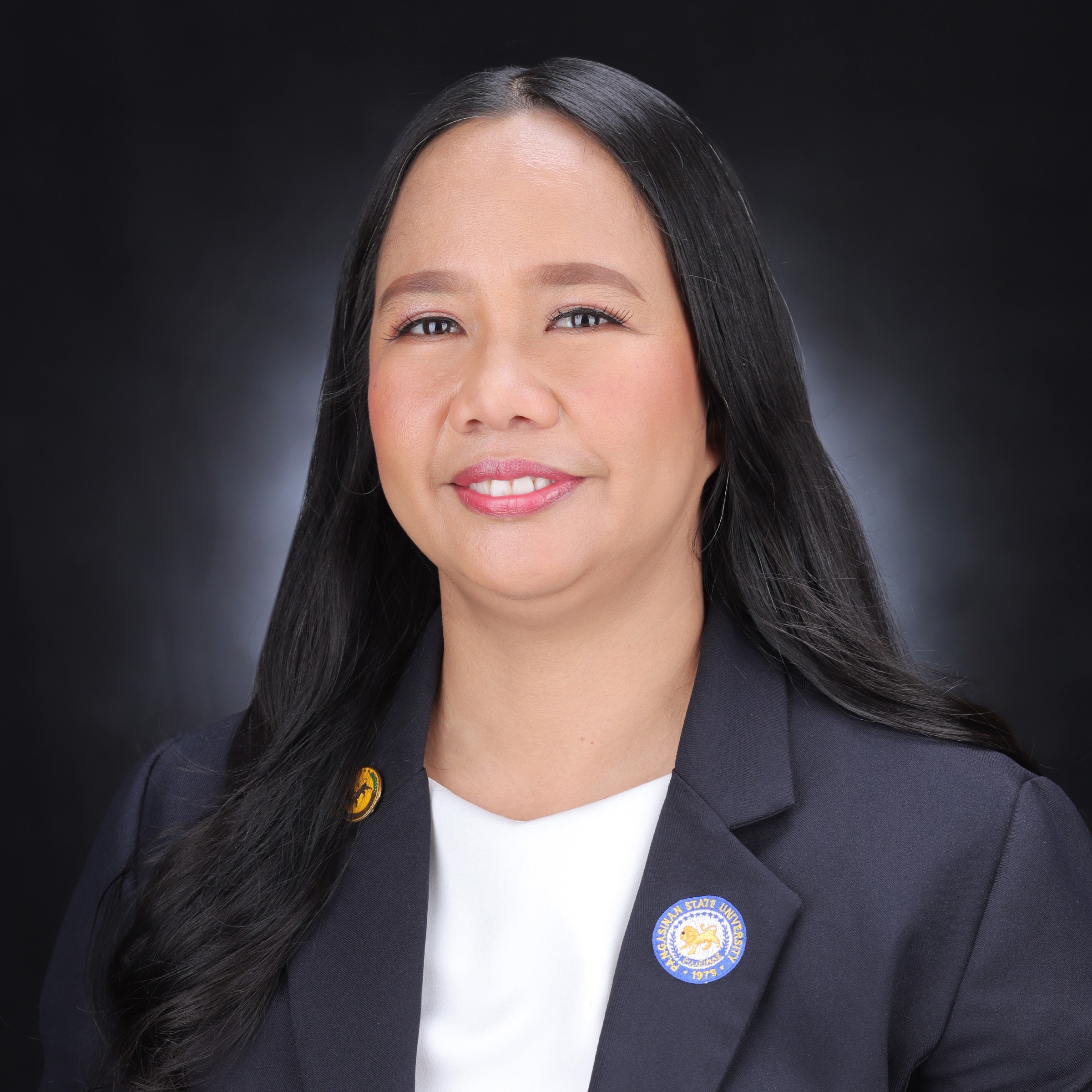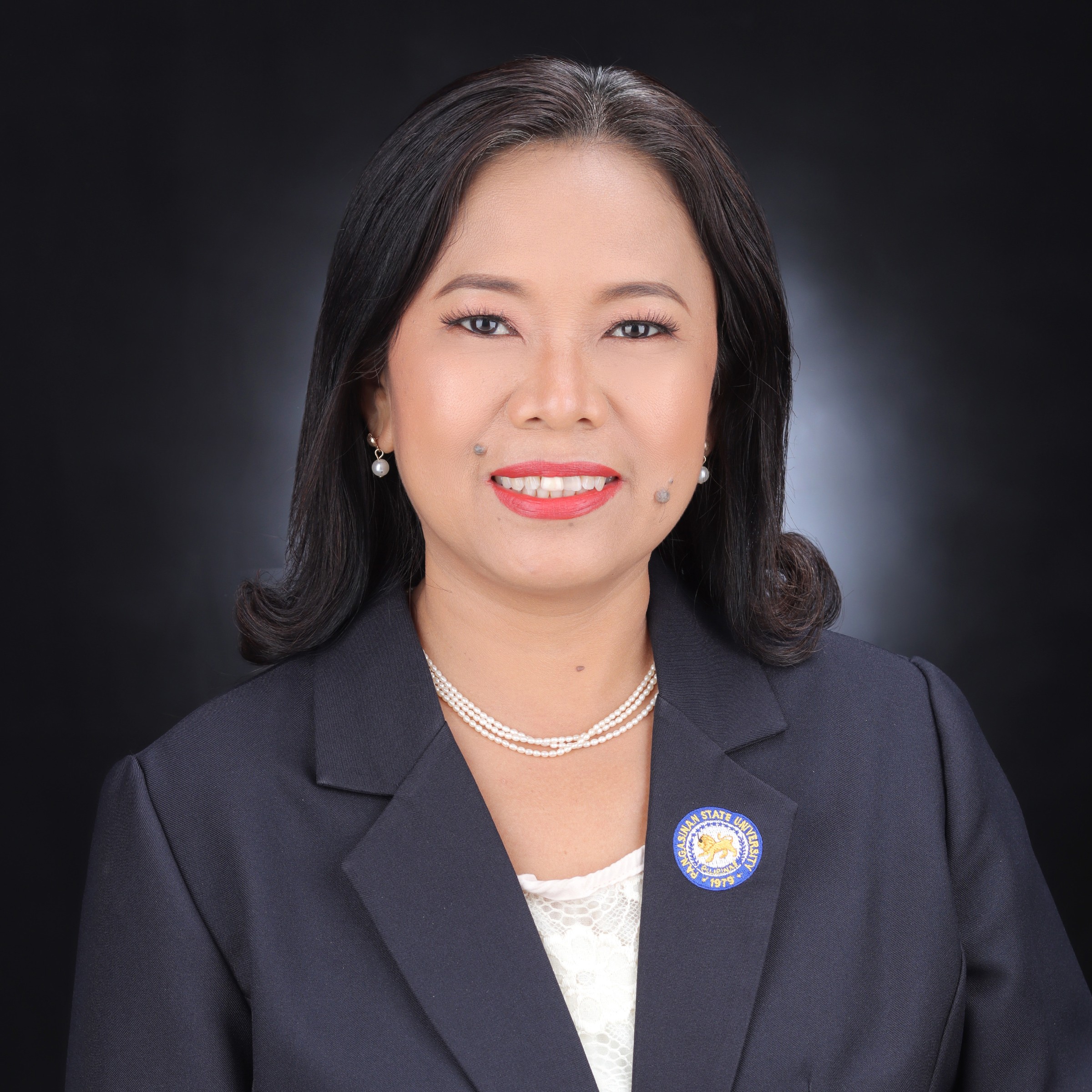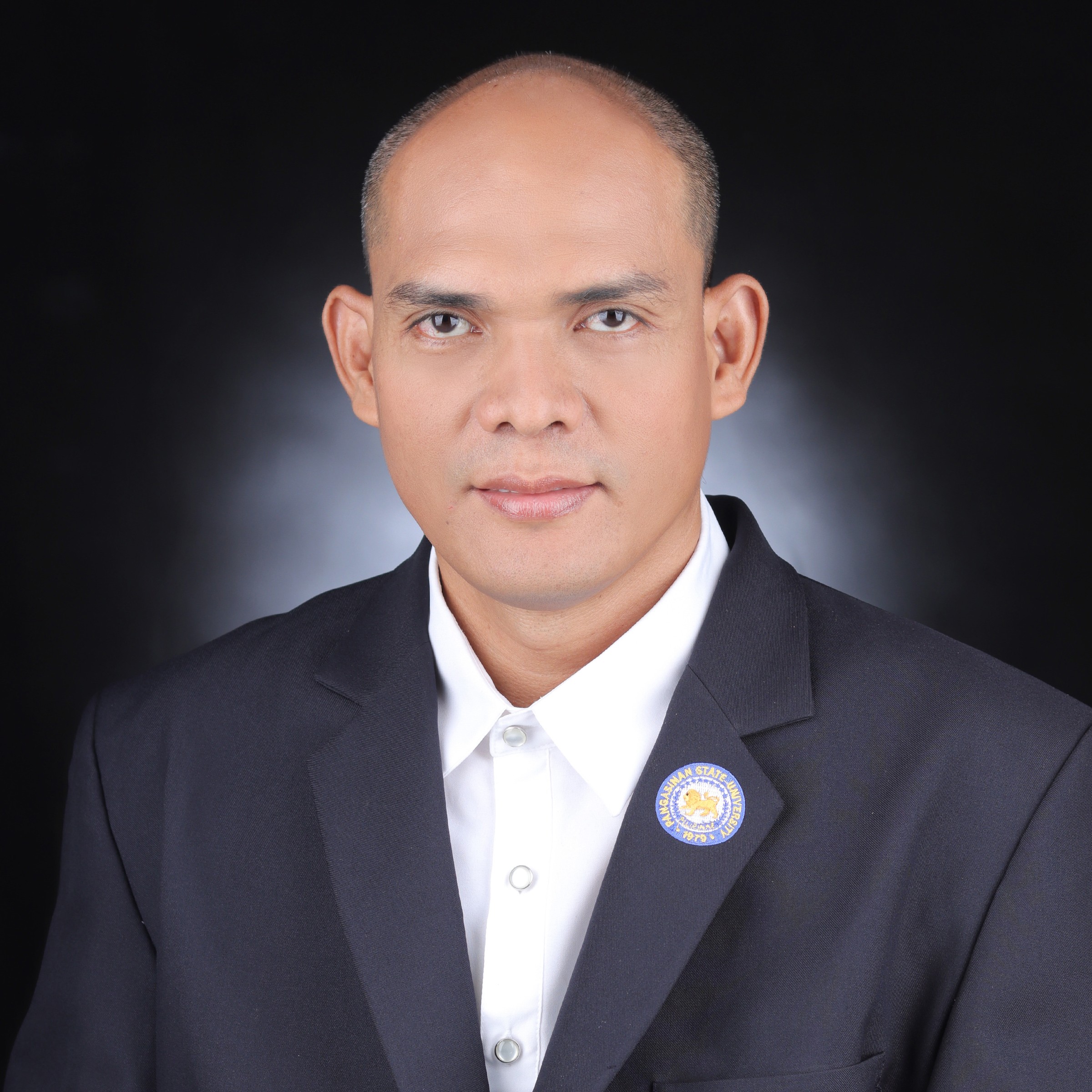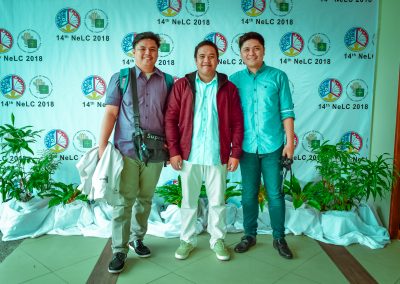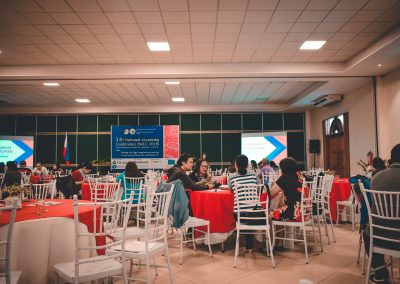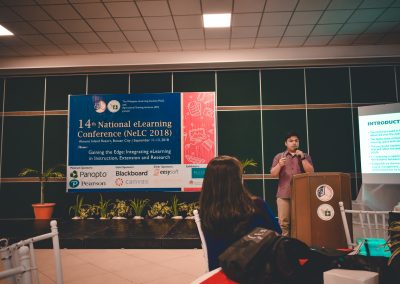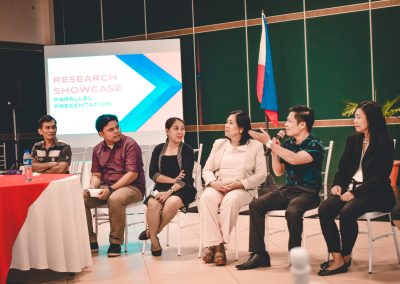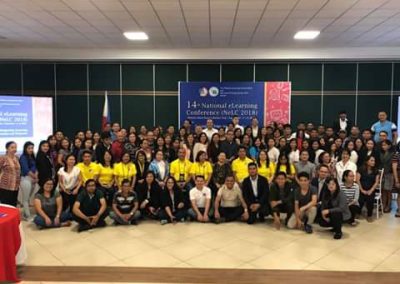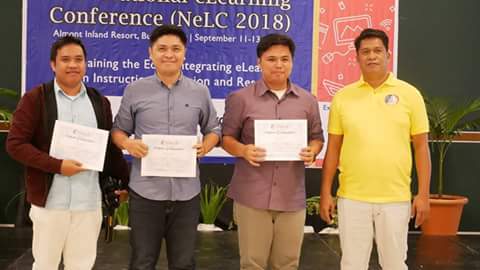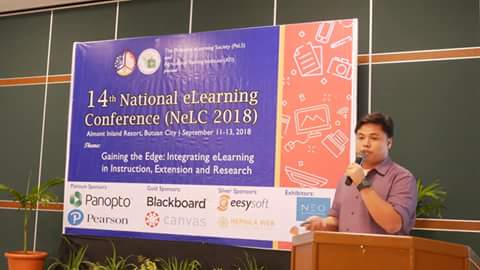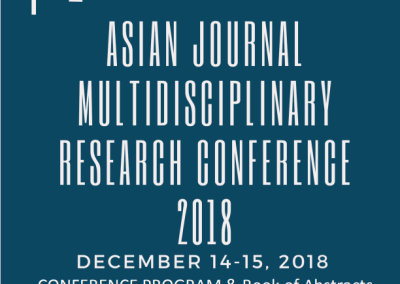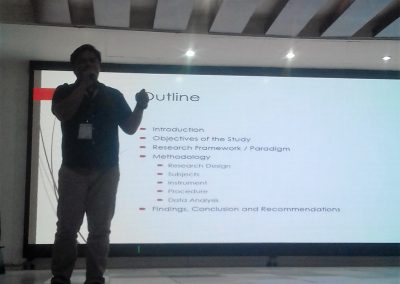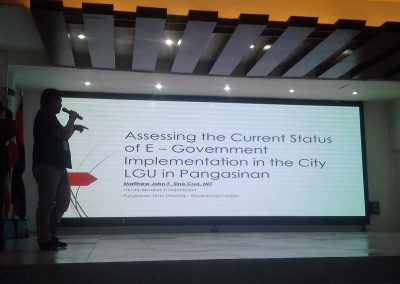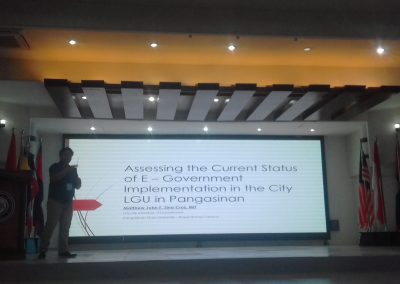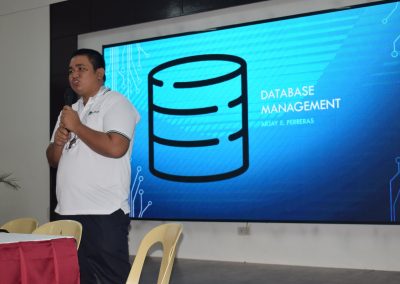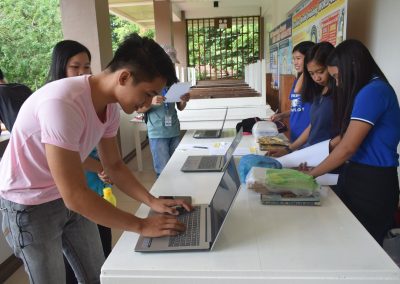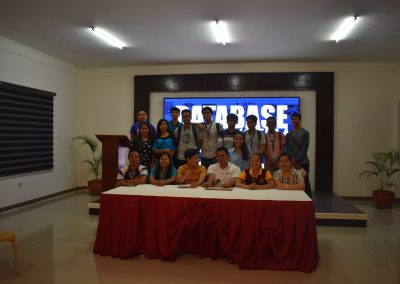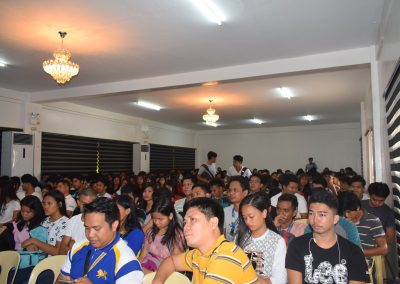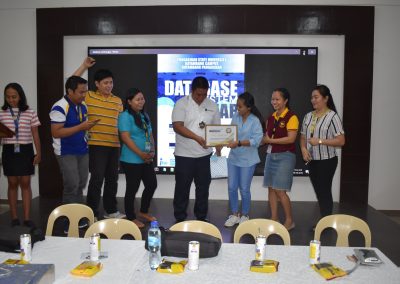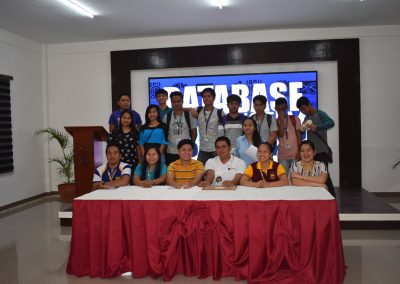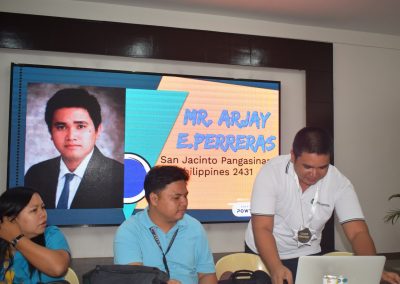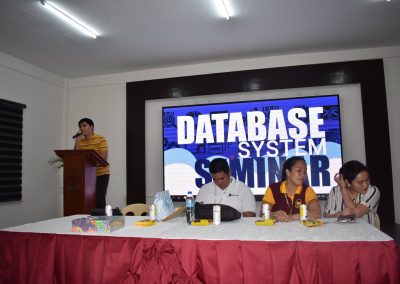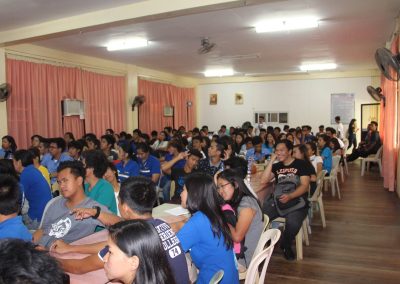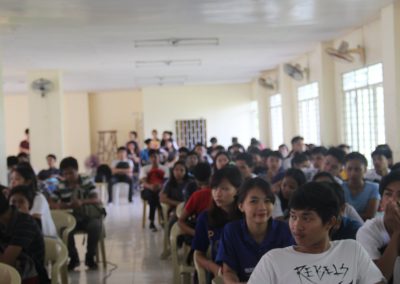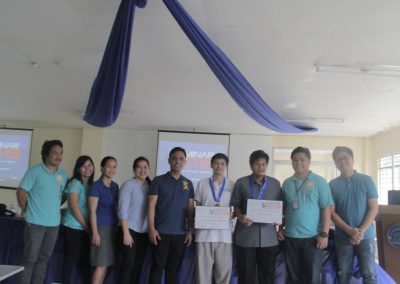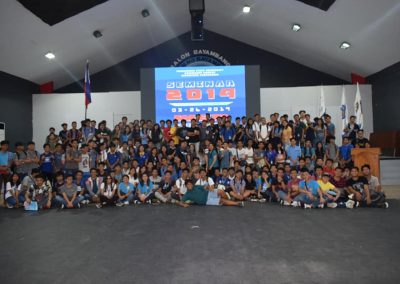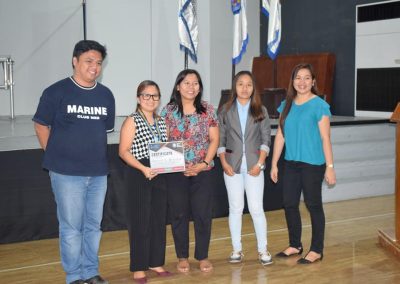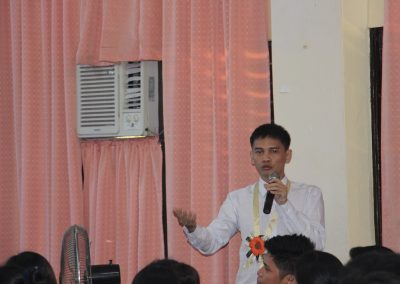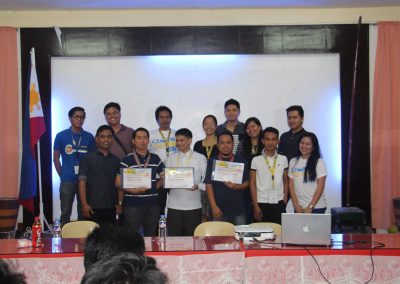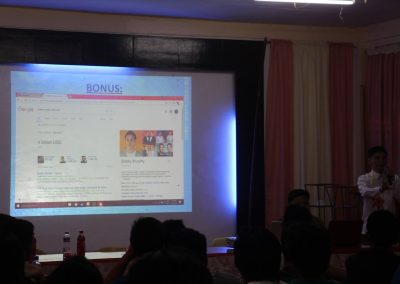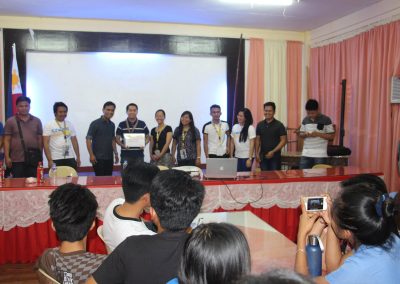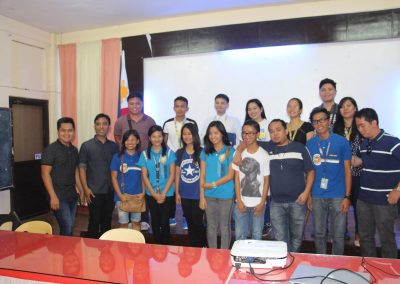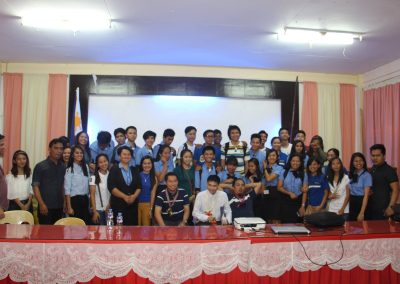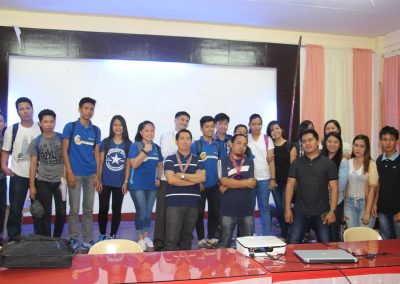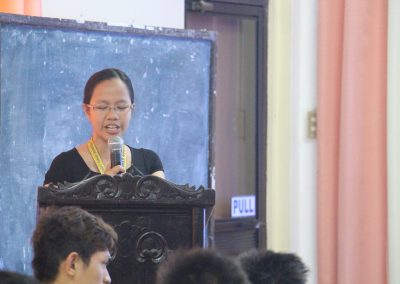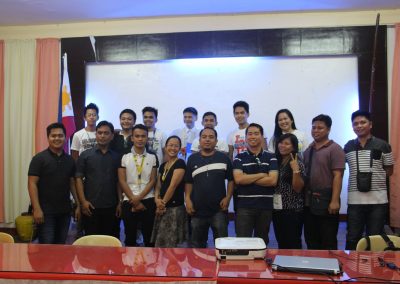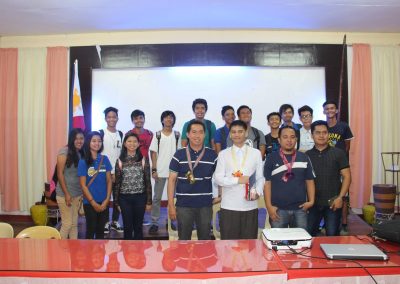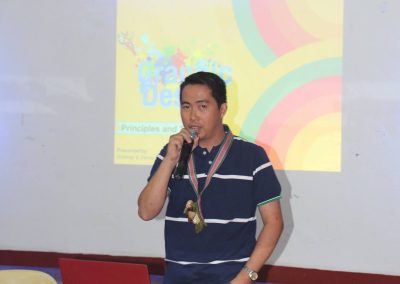
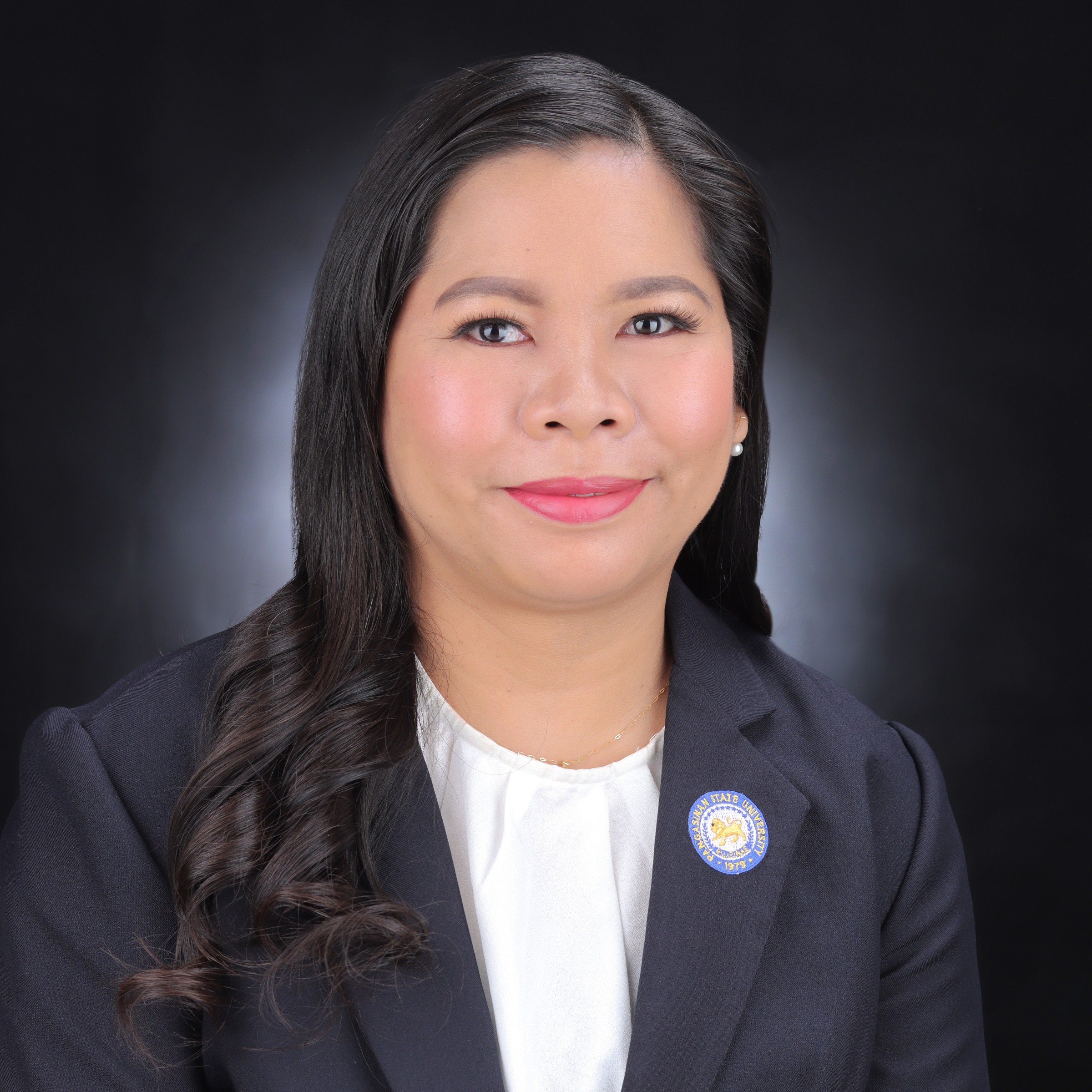
JANICE C. FRANCISCO, MIT
Department Chair
Welcome to BSIT Department
The Pangasinan State University is one of the many universities in the Philippines which offers quality and accessible education for all. As a well-established institution of higher learning, it offers a wide variety of programs in different areas of specialization such as Education, Healthcare, Business, Public Administration, Agriculture, and Information Technology and Computing Sciences. Guided by its core mission to develop globally competent professionals, the Pangasinan State University continues to improve the services it provides to the students and the community through instruction, community services and research.
In support to the University’s mission, the Information Technology Department continues to provide quality education to its students. We continuously enhance the curriculum of the BSIT program in order to meet the changing needs in the industry. This enables us to prepare our students for the changing demands in the job – market in the IT Industry and Computing Sciences. As a result, the graduates of the BSIT program lands a job, locally and internationally, that allows them to use their acquired skills and compete with the graduates of the other major Universities. It is with greatest pride that our graduates works primarily in different fields such as IT industry, Academe, Business Process Outsourcing, Government, Banking and Finance, and others which only proves the kind of quality that we offer in the department.
The university also offers support for the faculty development by providing scholarships, and participating to various seminars and trainings organized by organizations recognized nationally and internationally. This equips our faculty members to cope with the updates and current demands in the field of Information Technology and Computing Science.
To date, the BSIT degree offers two majors namely, Web and Mobile Technologies and Data Analytics. We also have been awarded with Certificate of Program Compliance (COPC), following the CHED Memorandum Order No. 25 Series of 2015 which sets the standards in offering the BS Information Technology program. In addition, the program was also awarded with Level III Phase 1 accreditation by the AACCUP last 2021.
For the coming years, the department will sustain and continue to improve its services to be provided to the students and the community.
We will continue to soar high like eagles and aim like the archers.
Kudos and welcome to the Information Technology Department.
The BS Information Technology program includes the study of the utilization of both hardware and software technologies involving planning, installing, customizing, operating, managing and administering and maintaining Information Technology infrastructure that provides computing solutions to address the needs of an organization.
The program prepares graduates to address various user needs involving the selection, development, application, integration and management of computing technologies within an organization. (IT 2021 Curriculum with CHED Contents Notation)
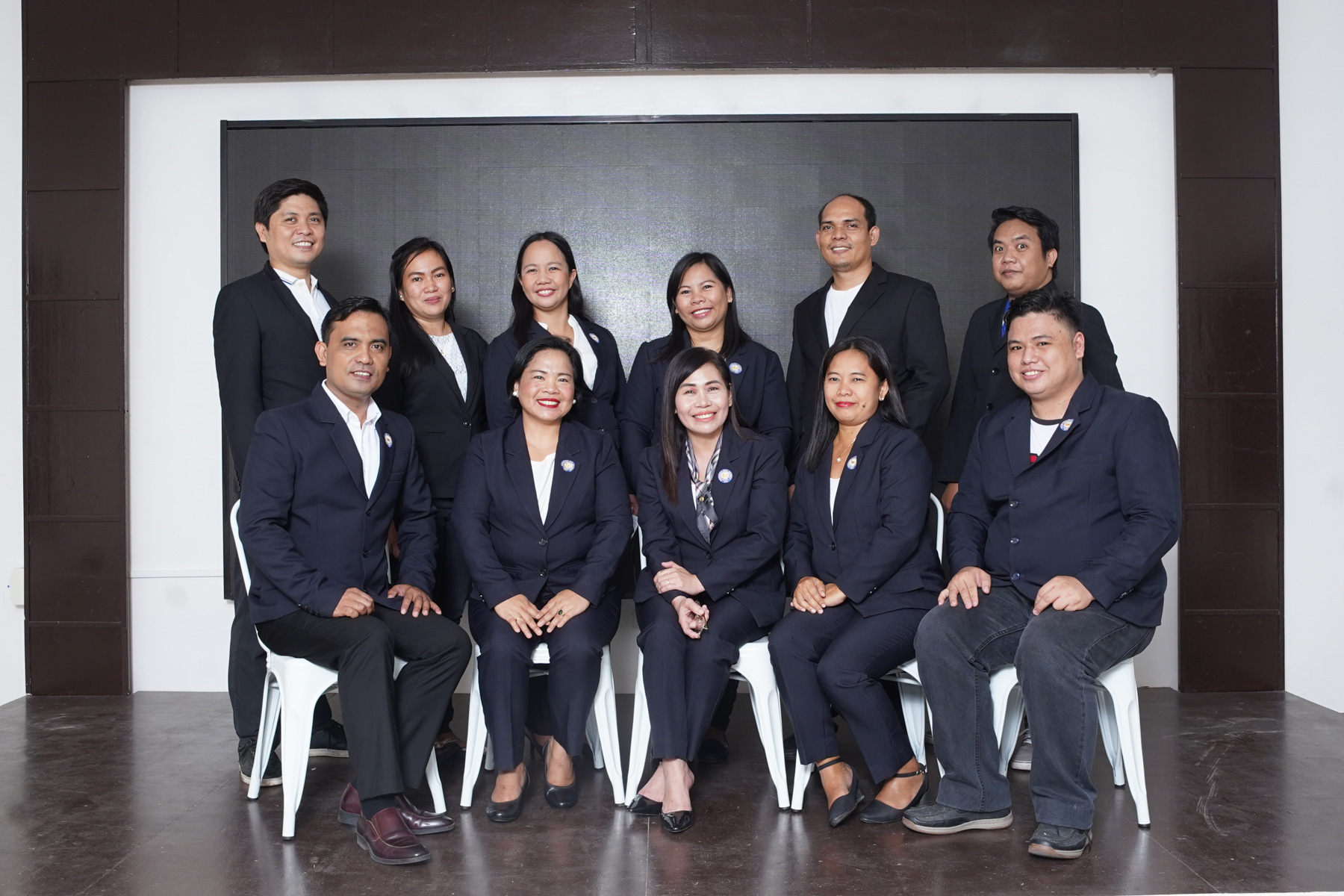
Directory
JANICE C. FRANCISCO, MIT
Department Chair
Sarah Jane M. Ferrer, MIT
IT Faculty
Rosalie G. Diego, MBA
IT Faculty
Matthew John F. Sino Cruz, MIT, MCS
IT Faculty
Wendell F. Salosagcol
IT Faculty
Kim Eric B. Nanlabi, MIT
IT Faculty
Edilberto Caralos, JR., MIT
IT Faculty
Michael Ryan C. Peoro, MIT
IT Faculty
Desire C. Licawen
IT Faculty
JUDITH ALLISON Y. CASTRO
IT Faculty
Sharyl Kay P. Corpuz, MIT
IT Faculty
EMPLOYMENT OPPORTUNITIES
- Application Developer
- Database Administrator
- Digital Animator
- Information Security Administrator
- Multimedia Technologist
- Network Administrator
- Network Engineer
- Systems Analyst
- Test Engineer
- Web Administrator/ Web Master
- Web Developer
The intent of the Information Technology program is to produce graduates who are able to meet the demands of the IT professional in the industry, both local and national area and in the ASEAN region. It has the following objectives: (IT 2018 Curriculum with CHED Contents Notation)
- Undertake projects that show ability to solve complex problems and to work in teams on problems whose solutions lead to significant societal benefits.
- Communicate effectively with diverse stakeholders as well as function appropriately in a team environment.
- Demonstrate ethical behavior as an IT professional and sensitivity to the impact of technology and society.
- Engage in lifelong learning and professional development.
|
Graduate Attributes |
Program Attributes |
Program Outcomes Code |
Program Outcomes |
|
Knowledgeable and Skilled IT Professional |
Knowledge for solving computing problems |
IT1 |
Apply knowledge of computing, science, and mathematics to address real problems appropriate to the discipline (CD-2) |
|
IT2 |
Distinguish best practices and standards and their applications |
||
|
Problem Analysis |
IT3 |
Analyze complex problems, and identify and define the computing requirements appropriate to its solution (CD-1) |
|
|
IT4 |
Identify and analyze user needs and take them into account in the selection, creation, evaluation and administration of computer-based systems (CD-1) (ILO-1) |
||
|
Design, development of solutions |
IT5 |
Design, implement, and evaluate computer-based systems, processes, components, or programs to meet desired needs and requirements under various constraints (CD-3) (ILO-1) |
|
|
IT6 |
Integrate IT-based solutions into the user environment effectively (CD-3) (ILO-1) (ILO-3) |
||
|
Modern Tool Usage |
IT7 |
Apply knowledge through the use of current techniques, skills, tools and practices necessary for the IT profession (CD-4) |
|
|
People’s Champion |
Individual and Team Work |
IT8 |
Function effectively as a member or leader of a development team recognizing the different roles within a team to accomplish a common goal (CTS-3) |
|
IT9 |
Assist in the creation of an effective IT project plan (CTS-3) (ILO-1) |
||
|
Knowledgeable and Skilled Communicator |
Communication |
IT10 |
Communicate effectively with the computing community and with society at large about complex computing activities through logical writing, presentations, and clear instructions (CTS-2) (CTH-2) |
|
Community Developer |
Computing Professionalism and Social Responsibility |
IT11 |
Analyze the local and global impact of computing and information technology on individuals, organizations, and society (CTS-4) (CTH-1) (ILO-2) (ILO-5) (ILO-6) |
|
IT12 |
Understand professional, ethical, legal, security and social issues and responsibilities in the utilization of information technology (CTS-4) (CTH-1) (ILO-2) (ILO-5) (ILO-6) |
||
|
Continuous-Innovative Learner |
Life-Long Learning |
IT13 |
Recognize the need for and engage in planning self-learning and improving performance as a foundation for continuing professional development (CTS-1) (CTH-3) (ILO-4) |
Performance Indicators
|
Program Attributes |
Program Outcomes |
Performance Indicators |
|
Knowledge for solving computing problems |
Apply knowledge of computing, science, and mathematics to address real problems appropriate to the discipline (CD-2) |
|
|
Distinguish best practices and standards and their applications |
|
|
|
Problem Analysis |
Analyze complex problems, and identify and define the computing requirements appropriate to its solution (CD-1) |
|
|
Identify and analyze user needs and take them into account in the selection, creation, evaluation and administration of computer-based systems (CD-1) (ILO-1) |
|
|
|
Design, development of solutions |
Design, implement, and evaluate computer-based systems, processes, components, or programs to meet desired needs and requirements under various constraints (CD-3) (ILO-1) |
|
|
Integrate IT-based solutions into the user environment effectively (CD-3) (ILO-1) (ILO-3) |
|
|
|
Modern Tool Usage |
Apply knowledge through the use of current techniques, skills, tools and practices necessary for the IT profession (CD-4) |
|
|
Individual and Team Work |
Function effectively as a member or leader of a development team recognizing the different roles within a team to accomplish a common goal (CTS-3) |
Team member:
Leader of a team:
|
|
Assist in the creation of an effective IT project plan (CTS-3) (ILO-1) |
|
|
|
Communication |
Communicate effectively with the computing community and with society at large about complex computing activities through logical writing, presentations, and clear instructions (CTS-2) (CTH-2) |
|
|
Computing Professionalism and Social Responsibility |
Analyze the local and global impact of computing and information technology on individuals, organizations, and society (CTS-4) (CTH-1) (ILO-2) (ILO-5) (ILO-6) |
|
|
Understand professional, ethical, legal, security and social issues and responsibilities in the utilization of information technology (CTS-4) (CTH-1) (ILO-2) (ILO-5) (ILO-6) |
|
|
|
Life-Long Learning |
Recognize the need for and engage in planning self-learning and improving performance as a foundation for continuing professional development (CTS-1) (CTH-3) (ILO-4) |
|
The BSIT graduates are expected to become globally competent, innovative, and socially and ethically responsible computing professionals engaged in life-long learning endeavors. They are capable of contributing to the country’s national development goals. (IT 2021 Curriculum with CHED Contents Notation)
Department Activities
2018 IT Department Research Presentation
14th National E – Learning Conference 2018
Faculty members of the Information Technology Department, Mr. Kim Eric B. Nanlabi, Mr. Michael Ryan C. Peoro, and Mr. Matthew John F. Sino Cruz, presented their paper entitled, “Level of Awareness of PSU – Bayambang Campus Students Towards E-Learning Technologies” at the 14th National e-Learning Conference held by the Philippine E-Learning Society (PeLs) on September 11-13, 2019 at Inland Resort, Butuan City.
Asian Journal for Multidisciplinary Research Conference 2018
Mr. Matthew John F. Sino Cruz, MIT presented his research paper entitled “Assessing the Current Status of E-Government Implementation in the city LGU in Pangasinan” at the 2018 Asian Journal Multidisciplinary Research Conference held on December 14-15, 2018 at Pangasinan State University, Lingayen, Pangasinan.
IT Seminar
2019 – Database System
Database Systems are essential component of any computerized systems being implemented in different organizations nowadays. It allows the organization to put up a systematic storage of the data that are deemed useful in their respective processes. Last October 2019, the IT Student Organization Officers and the IT Department organized an IT seminar concentrating on database systems and technologies. It was held at the PSU – Bayambang Learning Resource Center. The speaker of the said event was Mr. Arjay Perreras who is a database manager of the University of Pangasinan – Phinma Education System. He shared his knowledge and expertise on different technologies that the students can use as their primary database management tool. The event was attended and participated by the students coming from different programs.
IT SEMINAR 2018 – Machine Learning and Robotics
Machine Learning and Robotics are just some of the latest trends in the field of Information Technology and Computer Science. These fields have grown tremendously in the past couple years and its effect can be observed in different industries such as manufacturing, education, healthcare, and business. To allow the BSIT students be updated with these trends, an IT seminar focusing on Machine Learning and Robotics was organized by the IT Department and IT Club Officers last December 14, 2018 with a theme “Nurturing skills of the IT students towards machine learning and robotics”. The event took place at the PSU – Bayambang Social Hall, located at the College of Arts, Sciences, and Technology Building. The experts who shared their knowledge and expertise in these fields are Mr. Edmundo Casulla and Mr. Yuri Rancudo. The event was actively participated by the BS Information Technology Students.
IT Seminar 2017
Last March 21, 2017, an IT seminar entitled “Socially Digital” was held at the PSU Bayambang Campus Learning Resource Center. The theme of the event is the empowerment of youths by using multimedia and social media and how they can use these to freely express their insights and opinions responsibly. The event was organized by the IT Department Faculty Members and the IT Club officers and it was attended by the BSIT Students. In the event, three IT experts shared their knowledge and experience to the attendees. These experts include Mr. Rommel B. Ferrer, an Master Teacher in Bayambang National High School, Mr. Marc Stephenson Macaranas, a database administrator, and Mr. Francis Fernandez, a founder of a StartUp Company in Pangasinan.
IT Department Extension Program
Extension Program
Obilio Elementary School
Extension Program
Tanolong Elementary School
Gift Giving
Obilio Elementary School
